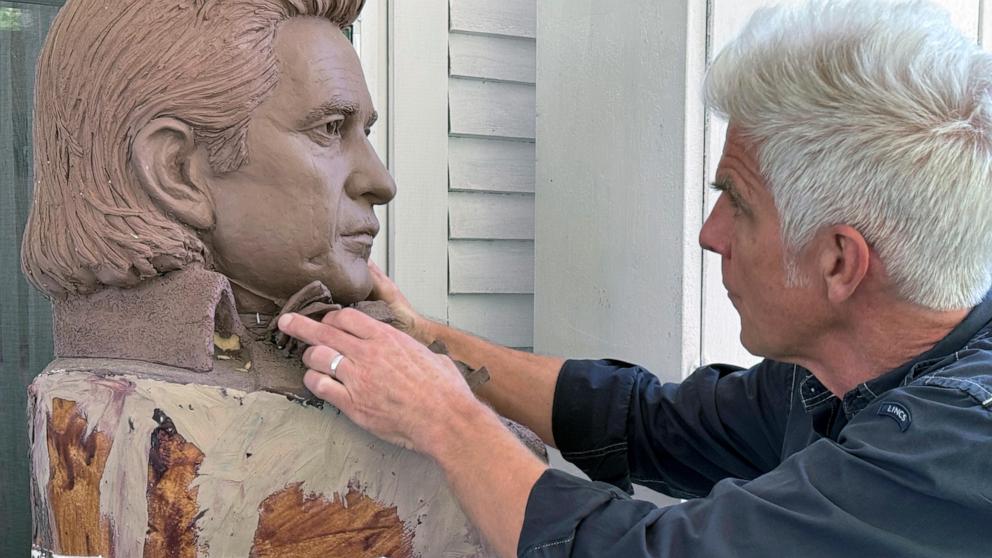Just a few weeks ago, China Evergrande, the world’s largest debt-laden real estate developer, was writing its final chapter and working to resolve its financial disputes with its creditors. Then came a torrent of bad news and the pages were torn out.
The employees were in the wealth management arm of the company detained By the authorities. Two former top executives are reportedly in detention and its billionaire boss is under police surveillance. Investors fled, selling their shares, sending the company’s already struggling shares down more than 40 percent over the past week.
The trouble swirling around Evergrande — at the heart of the housing crisis threatening the economy — deepened on Thursday when the company suspended trading in shares of its three publicly traded companies in Hong Kong without giving a reason.
Evergrande has provided little information about recent developments involving its executives, which were revealed by Chinese police and reported by domestic and foreign media. Instead, outsiders are filling in the blanks in a statement that Evergrande is under investigation and will not be able to proceed with a decisive restructuring of its debt.
The accelerating events add to the increasing pressure on policymakers in Beijing who are trying to address the real estate crisis in China. Two years ago, Evergrande’s collapse under $300 billion in debt put the world on the brink. Now the company is back in the spotlight, and its inability to resolve matters with its lenders is casting a pall over China’s real estate landscape, which is already riddled with signs of insolvency.
Uncertainty over the fate of Evergrande, which had nearly 110,000 employees as of July, is deepening concerns about dozens of other property developers who have defaulted over the past two years. Another major Chinese developer, Country Garden, which reported a loss of $7.3 billion in the first half of the year, is working to settle its debts with bondholders.
“It raises more questions than answers,” said Sandra Chow, co-head of Asia-Pacific research at credit analysis firm CreditSights. “In an environment where people are stressed, that doesn’t help. Sentiment was already bad in the real estate sector.
Chinese real estate stocks fell and in recent days reached their lowest levels in years. Home buyers are fickle. Some foreign investors who lent money to Chinese developers are also starting to lose confidence that they will get their money back at all.
China’s housing market, previously fueled by borrowing, has been hurting for several years since Beijing cracked down on property companies’ ability to take on more debt. In 2021, Evergrande was among the first and most high-profile to default on a tower of unpaid bills. Dozens of other private developers followed, raising concerns about China’s broader economy, which has long relied on the housing market for its growth.
China’s emergence from pandemic lockdowns at the start of this year unleashed optimism that some developers will be able to push ahead, buoyed by new home sales and progress in negotiations with creditors. Traders continued to swap bonds of distressed developers, sometimes for cents on the dollar, anticipating they could make money once the companies settled their debts.
But in recent months, the real estate market has faltered and apartment sales have declined. The loss of confidence among homebuyers has constrained the few remaining developers who have managed to avoid default.
In recent weeks, Beijing has offered new measures to boost the real estate market, such as lowering mortgage interest rates. Some of China’s largest cities have tried to ease restrictions on home purchases. But their efforts have done little to reverse broader pessimism among Chinese households who are deeply concerned about spending. One of the major developers, China Oceanwide, faces court-ordered liquidation due to the impatience of foreign creditors. Evergrande said last week it had to reevaluate its restructuring proposal because its sales failed to meet expectations, putting it closer to potential liquidation.
Along the way, some remaining creditors who believed developers would be able to pay some of their bills pulled out.
“We find the sector uninvestable,” said Michel Lowe, CEO of SC Lowe, an investment firm that previously had a small position in Evergrande bonds, citing poor information and disclosures.
The troubles of Evergrande and other developers have exposed deeper problems within China’s financial system, which has long accommodated unrestrained borrowing, unchecked expansion, and often corruption. However, even as regulators tighten rules and try to force companies to act, Evergrande still stands out for its corporate mismanagement.
When it faced a cash crunch two years ago, Evergrande turned to its employees, prompting many to lend it money through its wealth management unit. Authorities in the southern Chinese city of Shenzhen said this month that they had detained some employees at the wealth management unit.
Evergrande confirmed the arrests without providing any details, adding a new puzzle to a company that has never been particularly keen on keeping its investors informed. The company then canceled important meetings to finalize the restructuring plan, blamed deteriorating sales and said it could not issue new debt as part of the restructuring plan due to an investigation into its main business, whose shares are traded on the mainland.
Investors left in the dark by Evergrande have clung to media reports in recent days. Chinese media reported on Monday Caixin It was reported that the authorities detained Xia Haijun, the former CEO of Evergrande, and Pan Darong, the former CFO. The two former Evergrande executives resigned last year over their involvement in a plan to siphon $2 billion from a subsidiary into the coffers of Evergrande’s main holding company.
Then on Wednesday Bloomberg It was reported that Hui Ka Yan, the founder of Evergrande, was taken away by the police and was under residential surveillance. The company did not confirm the arrest of Mr. Pan, Mr. Chia or Mr. Hui, but on Thursday it suspended trading of three of its publicly traded companies in Hong Kong.
As negotiations over repaying foreign creditors for companies like Evergrande falter, and creditors grow more pessimistic, an important source of financing for Chinese companies is drying up.
“The door is closing for Chinese companies to issue debt abroad,” said Alicia Garcia Herrero, chief economist for Asia-Pacific at Natixis.
Ms. Garcia Herrero said private Chinese companies would need to be able to raise money from foreign investors if they wanted to expand. Most investors are no longer comfortable doing that, she said.
“When they need a market, will it be there? I don’t think so.”

“Extreme travel lover. Bacon fanatic. Troublemaker. Introvert. Passionate music fanatic.”







More Stories
Tyson shares fall as the food giant sees inflation eroding demand
Live updates on Asian markets: RBA meeting, trade with China
The chain restaurant that serves the best fried chicken